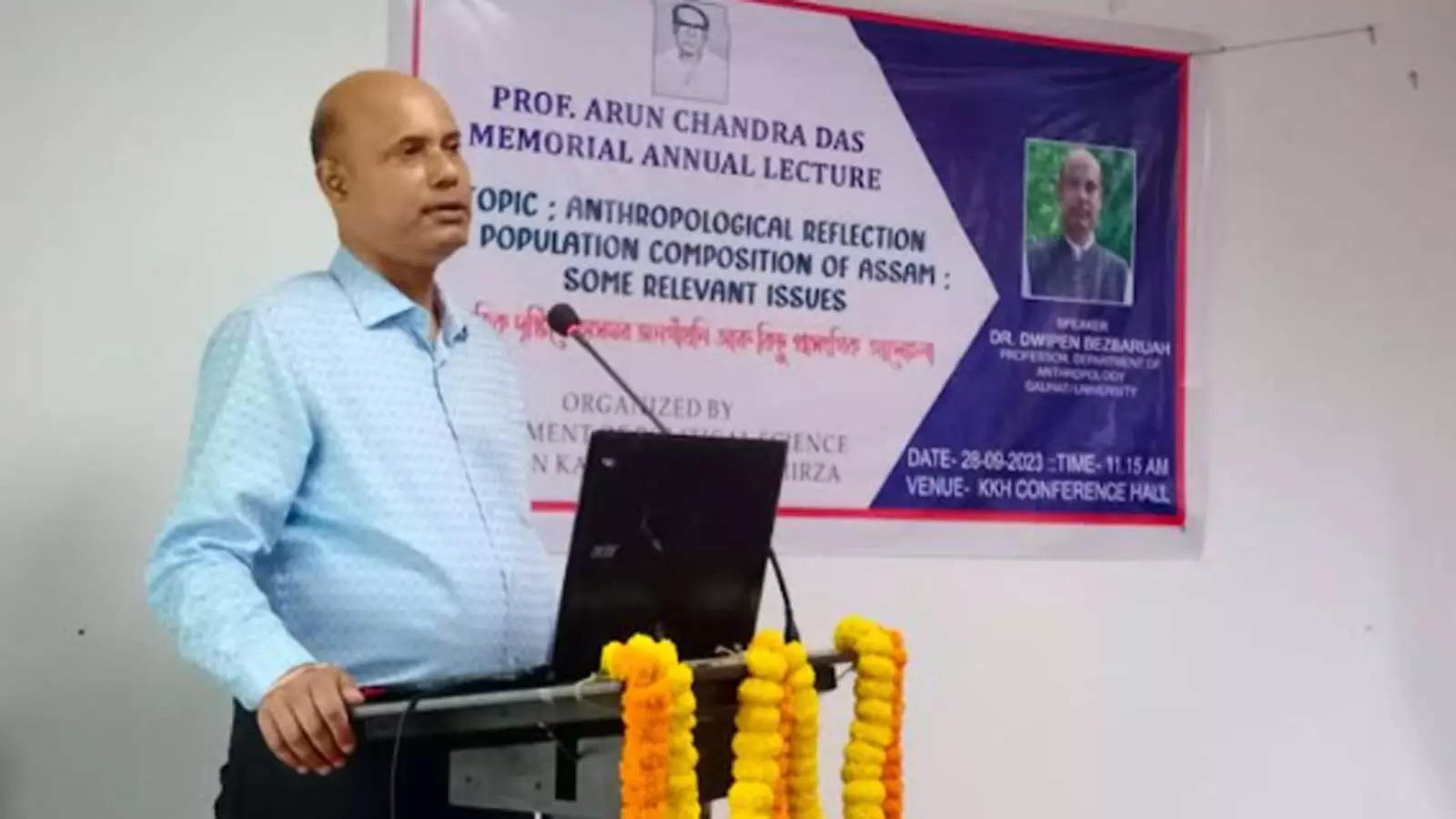GUWAHATI: Acclaimed anthropologist and researcher, Prof. Dwipen Bezbaruah of Gauhati University, said that the history of the population composition of Assam is the history of migration. In his speech at Prof. Arun Chandra Das Memorial Annual Lecture held at Dakshin Kamrup College on Thursday, he deliberated on how people from different parts of the world, with different origins — culture, race, language, and religion — migrated to Assam since prehistoric times and assimilated.
“Through the process of assimilation, they have become part of the composite population of Assam,” he asserted.
Only in the later stages of history, Bezbaruah said, they have been recognized and classified by modern laws, incorporated in the Constitution of India.
Bezbaruah judiciously explained the classification of the population of Assam based on caste and tribes. He also traced diverse issues related to the population dynamics in Assam at present.
Earlier, at the outset of his lecture, he shed light on the relationship between anthropology and political science and the significance of studying political anthropology before delving into the main topic.
The second Prof. Arun Chandra Das Memorial Annual Lecture was organized by the Department of Political Science at Dakshin Kamrup College, Mirza, on “Anthropological Reflection on Population Composition of Assam: Some Relevant Issues.” Prof. Dwipen Bezbaruah joined the lecture program as a resource person, where tribute was paid to Prof. Arun Chandra Das, who was the founder head of the Department of Political Science at Dakshin Kamrup College.
At the end of the lecture, Prof. Bezbaruah interacted with the students and faculty members of the department and answered the queries of the participants. Manash Pratim Baruah, head of the Political Science Department at the college, moderated the lecture program. The vote of thanks was given by Hirakjyoti Rajbongshi, lecturer in the Department of Political Science.
“Through the process of assimilation, they have become part of the composite population of Assam,” he asserted.
Only in the later stages of history, Bezbaruah said, they have been recognized and classified by modern laws, incorporated in the Constitution of India.
Bezbaruah judiciously explained the classification of the population of Assam based on caste and tribes. He also traced diverse issues related to the population dynamics in Assam at present.
Earlier, at the outset of his lecture, he shed light on the relationship between anthropology and political science and the significance of studying political anthropology before delving into the main topic.
The second Prof. Arun Chandra Das Memorial Annual Lecture was organized by the Department of Political Science at Dakshin Kamrup College, Mirza, on “Anthropological Reflection on Population Composition of Assam: Some Relevant Issues.” Prof. Dwipen Bezbaruah joined the lecture program as a resource person, where tribute was paid to Prof. Arun Chandra Das, who was the founder head of the Department of Political Science at Dakshin Kamrup College.
At the end of the lecture, Prof. Bezbaruah interacted with the students and faculty members of the department and answered the queries of the participants. Manash Pratim Baruah, head of the Political Science Department at the college, moderated the lecture program. The vote of thanks was given by Hirakjyoti Rajbongshi, lecturer in the Department of Political Science.


